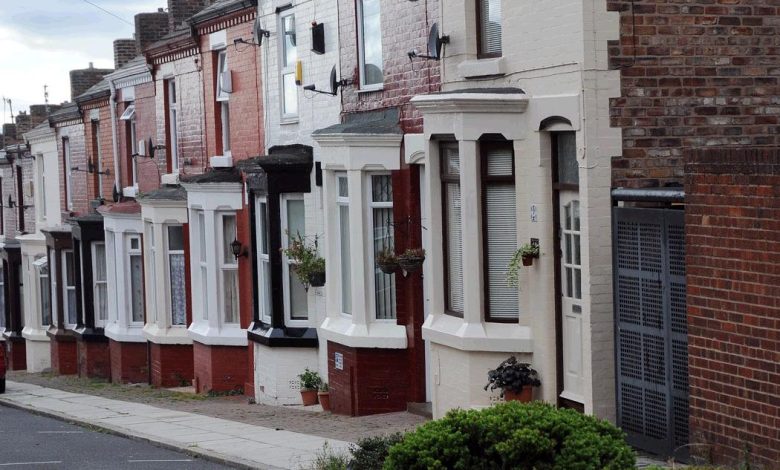Liverpool launches Council Tax Support Scheme consultation

Liverpool City Council is consulting on future options for its Council Tax Support Scheme affecting working age people.
Council Tax Support is a discount which helps households on low incomes with their Council Tax bill.
Around a third of households in Liverpool are in receipt of Council Tax support and the scheme costs £74 million a year to operate.
Applying the discount affects the amount of Council Tax the Council receives and also has an impact on the amount of Council Tax that all households in the city pay.
The scheme has not been reviewed since it started in 2013, despite changes to welfare benefits and Council funding over this period.
Like all local authorities the Council has a number of financial challenges. The proposals enable the Council to provide a scheme that is financially sustainable in future years.
The aim is to have a scheme that supports those on the lowest incomes, enables residents to budget, is easy to understand, provides incentives for people moving into work, and is future proofed in terms of its cost.
The current scheme is means tested and entitlement is calculated by comparing the money coming into a household with the amount the Government says the household needs to live on.
The Council’s aim, through its proposed changes, is to simplify the rules so that people know how much their Council Tax bill will be reduced by over a year, enabling them to budget. The proposed changes will also align with Universal Credit and provide some certainty for people moving into – or out of work – whilst continuing to provide support to those that need it most.
The proposals do not affect the Council Tax Support Scheme for pensioner households, the rules for which are controlled by central Government.
There are four options being consulted on:
Option 1
Keep the existing Council Tax Support Scheme with no changes.
Option 2
Make limited changes to the Council Tax Support Scheme, including:
- Changing the maximum discount given
- Simplifying deductions for the amount deducted from Council Tax Support for another adult living in the property
- Providing a 12-month award so there is no need to report every change in income
- Supporting people who move into work by allowing them to stay in the same band for 12 months
- Capping the maximum award level to Council Tax band B or C, for those in the higher bands C/D, E, F, G or H properties
- Changing the length of time that an award can be backdated
Option 3
Introduce a simple banded scheme based on net earnings only, aligning with Universal Credit, which gives a lower level of discount (support) for those on higher net earnings.
Option 3 Monthly Net Earnings Bands
Band Support Monthly Earnings
1 84% £0
2 60% £0.01-£400
3 40% £401-£800
4 20% £801-£1,200
5 10% £1,201-£1,500
– 0% More than £1,500
It also includes:
- Simplifying non-dependant deductions (the amount deducted from Council Tax support for another adult living in the property)
- Providing a 12-month award so there is no need to report every change in income
- Supporting people who move into work by allowing them to stay in the same band for 12 months
- Capping the maximum award level to Council Tax band B or C, for those in the higher bands C/D, E, F, G or H properties
- Changing the length of time that an award can be backdated
Option 4
Introducing a simple income band scheme based on net earnings and household composition, aligning with Universal Credit.
This option is designed to reflect the different needs of different types of household.
The scheme has four bands with the level of award, varying with net earnings and household composition. To reflect the different levels of need, the upper and lower limits of the net earnings bands will be different for different types of household, such as single people, couples, or households with children.
For couples, the upper and lower limits in the net earning bands will be extended by £50 per week. For households with children, the upper and lower limits to the net earnings bands will be extended by £25 per child per week, with no limit on the number of child additions.
Option 4 Monthly Net Earnings Bands
Band Support Monthly Earnings
1 84% £0
2 60% £0.01-£400
3 40% £401-£800
4 20% £801-£1,200
5 10% £1,201-£1,500
*Households with more than £1,500 in net monthly earnings would receive no support
It also includes:
- Simplifying non-dependant deductions (the amount deducted from Council Tax support for another adult living in the property)
- Providing a 12-month award so there is no need to report every change in income
- Supporting people who move into work by allowing them to stay in the same band for 12 months
- Capping the maximum award level to Council Tax band B or C, for those in the higher bands C/D, E, F, G or H properties.
- Changing the length of time that an award can be backdated.
Have your say until Monday 21 October at https://liverpool.gov.uk/ctaxsupportconsultation.
Following the consultation, a report will be sent to a Full Council meeting to make a final decision in January 2025.
Deputy Council Leader, Cllr Ruth Bennett, said:
“We are hugely proud of the range of welfare support we offer to the most vulnerable residents in Liverpool.
“We have not reviewed the Council Tax Support Scheme for more than a decade, as a result the current system is complex for residents to understand and does not target support to those who most need it. We want to build a system which works for our residents.“We want to look at how we can simplify the scheme and make it more easily understandable for those who receive assistance.
“We are also looking at how to give residents more certainty, for example by giving them a settlement for the whole year, rather than them having to report any changes in their income to us. This is not just time consuming for them, but is also costly to administer for the Council.
“We also want to support people into work. We will do this by providing some certainty so whe residents go into work they will retain the same award of Council Tax Support for a full 12 months before it is reassessed.
“We want residents’ feedback on the options before we make a final decision later on this year, with the changes being introduced from April 2025.”




